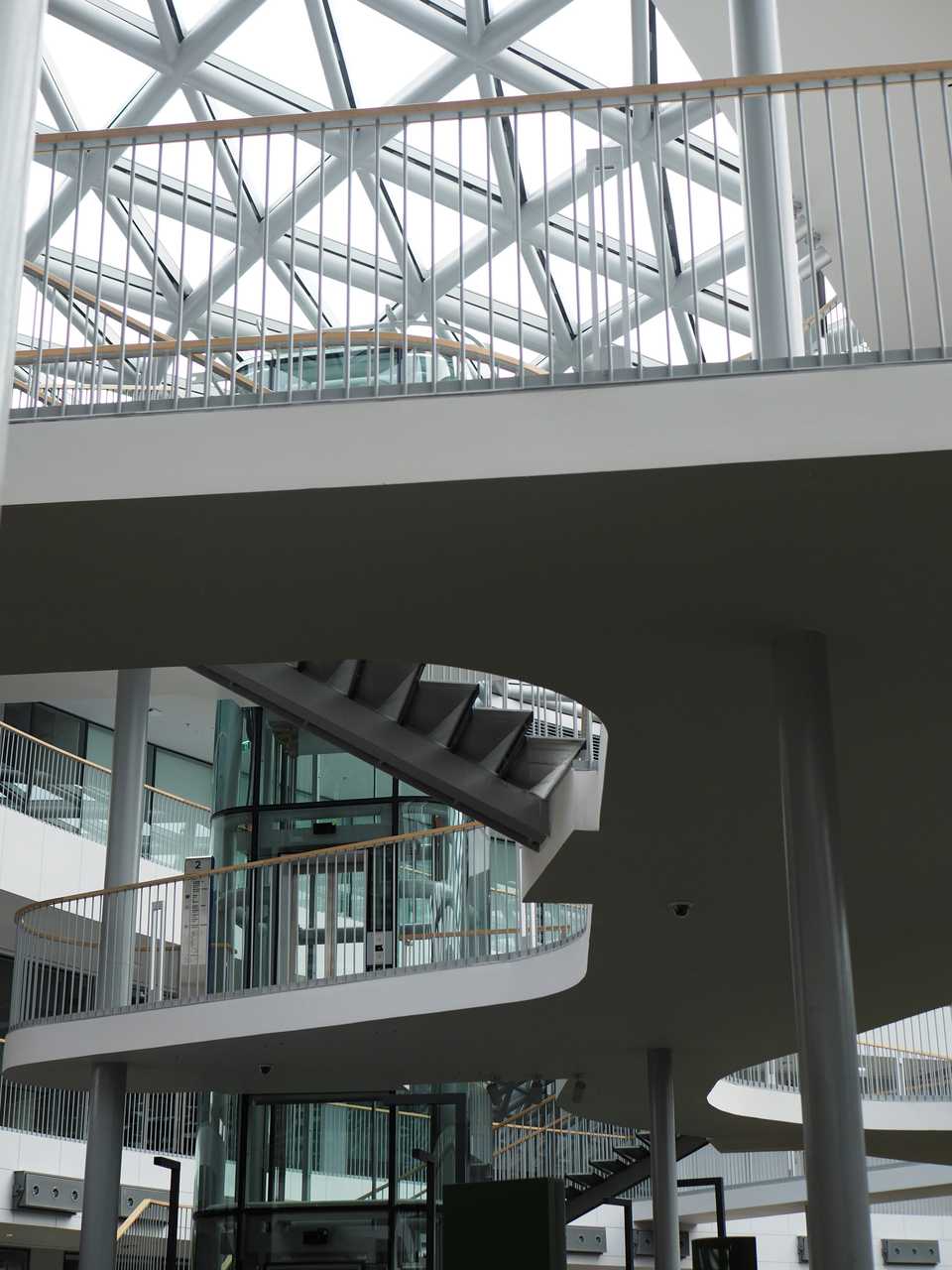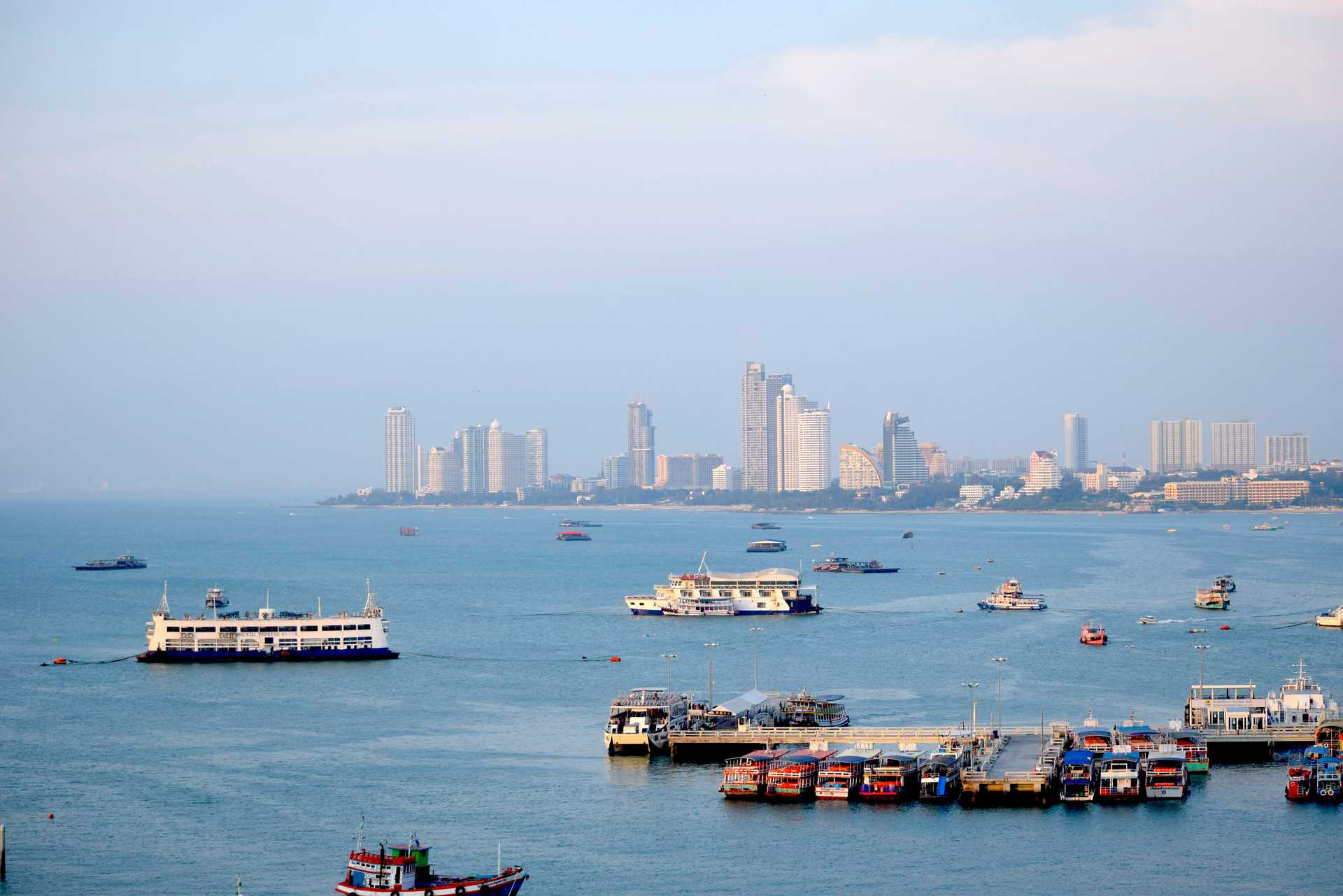Overview
As part of the Thailand 4.0 economic development plan, a nationwide economic strategy to transform Thailand from a manufacturing-driven economy to an innovation-driven economy, the Thai government proposed an initiative to further develop a special economic zone in the eastern part of Thailand: the Eastern Economic Corridor (EEC). The EEC is comprised of 3 provinces: Chonburi, Chachoengsao, and Rayong. Among the planned projects for the EEC is an ambitious plan for the EEC Smart City because the anticipated economic growth in the region will require a new metropolitan area to support the economic activities. The EEC Smart City aspires to not only become Thailand's first-ever smart city but also to become a world-leading one.
Goals and Aspirations
Attracting investment and driving economic growth. The EEC smart city aims to attract domestic and foreign investments in targeted industries such as automotive, electronics, petrochemicals, and digital technology. By providing advanced infrastructure, incentives, and a supportive business environment, the project seeks to boost Thailand's economic growth and competitiveness.
Developing advanced infrastructure and connectivity. The smart city will focus on building state-of-the-art infrastructure, including high-speed rail links, airports, ports, and digital connectivity. This infrastructure will facilitate seamless transportation and logistics, enabling efficient movement of goods and people within the EEC and beyond. The integration of smart technologies, such as the Internet of Things (IoT) and 5G networks, will enhance digital connectivity and support the growth of innovative industries.
Promoting sustainable urban development and quality of life. The EEC smart city aims to create livable and sustainable urban environments that enhance the quality of life for residents and workers. This includes developing green spaces, implementing smart waste management systems, and promoting the use of renewable energy sources. The project also focuses on providing access to high-quality education, healthcare, and public services to attract and retain a skilled workforce. The EEC aspires to the smart city to deliver a better quality of life than what Bangkok currently offers.
Key Characteristics
Integration of Smart Technologies. The EEC smart city heavily relies on the integration of smart technology interventions to ensure that it achieves its goal of becoming a truly world-leading smart city. These interventions span across various domains, including infrastructure, services, and governance, to create an efficient, sustainable, and livable urban environment. This will be done by incorporating technologies such as the Internet of Things (IoT), artificial intelligence (AI), and 5G networks, and these technologies will be used to optimize various aspects of city operations, including traffic management, energy consumption, public safety, and service delivery. The integration of smart sensors, data analytics, and automation will enable real-time monitoring and efficient decision-making, making the city more responsive and adaptable.
Livability & Well-being. The EEC smart city project places a strong emphasis on ensuring a good quality of life for its residents. The project recognizes that creating a livable, inclusive, and sustainable urban environment is essential for the well-being and happiness of the people living in the smart city. The project aspires to achieve this by adopting a human-centric approach to urban planning and design, focusing on creating livable and vibrant communities through principles of walkability, mixed-use development, and green spaces to promote active lifestyles, social interaction, and a sense of community. The goal is for residents to have access to schools, green spaces, and healthcare within walking & biking distance.
The EEC will also provide affordable and sustainable housing options for residents, catering to different income levels and family sizes, who will be equally represented among the residents. On the governance side, the project will promote inclusive and participatory governance to ensure that all residents have a say in the decision-making processes that shape their city. This will be done by leveraging digital platforms, such as online forums, citizen engagement apps, and participatory budgeting tools, to facilitate & democratize active citizen participation and feedback.
Thainess & Culture. The EEC smart city aims to promote and preserve Thai culture, often referred to as "Thainess," as an integral part of its development goals. The EEC smart city project plans to incorporate traditional Thai architectural elements, designs, and motifs into the physical infrastructure and buildings; the minimum guideline is for building materials to be at least 30% of the project. The EEC smart city project will also support the growth and development of Thai creative industries, such as traditional crafts, performing arts, and design by providing platforms, spaces, and resources for Thai artists, artisans, and creative entrepreneurs to showcase their talents and products and fostering the creative economy, the project aims to promote Thai cultural expressions and innovations on a global stage.
Additionally, the EEC is committed to promoting and hosting various Thai festivals and cultural events & other important aspects of Thai culture such as Thai culinary heritage by supporting local food industries, traditional markets, and culinary tourism initiatives.
Emphasis on Sustainability and Green Initiatives. The EEC smart city will prioritize sustainable urban development and environmental conservation. For example, in the development stage, the existing waterways & bodies of water will not be altered & the project will try to preserve existing vegetation. In construction, the city will incorporate green building practices, renewable energy sources, and smart grid technologies to reduce its carbon footprint and promote energy efficiency; the guidelines state that 40% of the buildings will be LEED Silver/Gold. Additionally, green spaces, parks, and urban forests will be integrated into the city landscape to enhance biodiversity, improve air quality, and provide recreational opportunities for residents; the EEC targets 30% of the land use to be green spaces. The city will also implement smart waste management systems, water conservation measures, and sustainable transportation options to minimize environmental impact.

Stakeholders
Thai Government. The Thai government, particularly the Ministry of Industry & the Ministry of Digital Economy and Society, are the primary drivers and coordinators of the project. They are responsible for developing policies, allocating resources, and providing overall direction and support for smart city development. Thai Government
The Eastern Economic Corridor Office of Thailand. The Eastern Economic Corridor Office of Thailand (EECO) is a public agency set up by the Thai government as a business facilitator to encourage investments & oversee the development of the EEC to ensure its success & in accordance with the Thailand 4.0 policy. The Eastern Economic Corridor Office of Thailand
Universities and Research Institutions:. Universities, research centers, and innovation hubs in Thailand and beyond are key partners in the EEC smart city project. They contribute to research and development, knowledge sharing, and talent development in fields related to smart city technologies and sustainable urban development. Through partnerships with the EEC, various universities & research institutions have campuses located in the EEC. Organization Name
Leadership
Chula Sukmanop. As of 2024, Chula Sukmanop, the former head of the Civil Aviation Authority of Thailand, is the secretary general of the Eastern Economic Corridor Policy Committee for the term (2023-2027). Having led the Civil Aviation Authority of Thailand, Chula notably overhauled air safety standards in Thailand. His other notable positions include Inspector General in the Ministry of Transport, Director General in the Department of Airports, Director General in the Marine Department, and Director General in the Office of Transport and Traffic Policy and Planning.
Technology Interventions
Internet of Things (IoT) and Sensor Networks. The EEC smart city project will deploy an extensive network of IoT devices and sensors to collect real-time data on various aspects of the city's operations. These sensors monitor traffic flow, air quality, energy consumption, water usage, waste management, and public safety, among other things & will serve as a backbone in the city's data to optimize city services, improve resource efficiency, and enable data-driven decision-making.
City Operating System and Dashboard. The City Operating System (OS) and Dashboard are key technology-enabled interventions designed to tackle various urban issues and improve city management. The City OS will be a centralized platform that integrates data from various sources, such as IoT sensors, mobile apps, and government databases, to provide a holistic view of the city's operations. It acts as the brain of the smart city, enabling real-time monitoring, analysis, and decision-making. The City OS will have a data collecting layer & integrate with external data sources, which will be aggregated into the smart city data platform that can be used by users.
The City Dashboard will be a visual interface that presents real-time information and insights from the City OS in an intuitive and user-friendly manner. It serves as a single point of access for city officials, citizens, and other stakeholders to monitor and interact with the smart city system with features such as real-time monitoring, citizen engagement & feedback, and alerts & notifications.
By leveraging the City OS and Dashboard, the EEC smart city project can tackle various urban issues, such as traffic congestion, energy efficiency, public safety, and environmental sustainability. These technology-enabled interventions provide city officials with real-time insights, predictive analytics, and tools for informed decision-making and effective city management. They also empower citizens to actively participate in shaping their urban environment and contribute to the development of a more livable and sustainable smart city.
Digital Governance and Citizen Engagement. The EEC will leverage digital technologies to enable transparent, accountable, and participatory governance. E-government platforms and mobile apps are developed to provide citizens with easy access to public services, information, and feedback mechanisms. Digital tools, such as online forums, surveys, and voting systems, are used to engage citizens in decision-making processes and foster a sense of ownership and participation. The EEC views the E-government platform as the best way for residents to participate & provides the least amount of friction in the communication between city officials & residents.

Financing
Financing Scheme. The Eastern Economic Corridor (EEC) smart city project relies heavily on Public-Private Partnerships (PPPs) for funding and implementation. PPPs are collaborative arrangements between the government and private sector entities to finance and develop critical infrastructure projects within the EEC, such as high-speed rail lines, airports, ports, and smart city components. The Thai government partners with private companies, both domestic and international, to share the costs, risks, and responsibilities of these large-scale infrastructure projects, and the majority of the funding is from the private side. This funding scheme can be beneficial because private sector partners bring their expertise, technology, and resources to design, build, and operate the infrastructure assets, while the government provides land, regulatory support, and other incentives. Additionally, PPPs in the EEC project are typically long-term arrangements, spanning several decades. These long-term partnerships ensure the sustainability and continuity of the project, as private partners have a vested interest in the successful operation and maintenance of the infrastructure assets.
Outcomes
Increased Foreign Direct Investment and Economic Growth. To date, the EEC smart city project has attracted substantial foreign direct investment in targeted industries such as automotive, electronics, and digital technology. The advanced infrastructure, favorable business environment, and incentives (primarily tax) provided by the project have boosted investor confidence and positioned Thailand as a compelling investment destination. The influx of FDI is expected to drive economic growth, create new jobs, and contribute to the overall development of the EEC region and Thailand as a whole. As a result, foreign direct investments have also strengthened foreign affairs & diplomatic ties with various countries.
Belts & Roads Initiative. The Eastern Economic Corridor plays a significant role in China's Belt and Road Initiative (BRI). The region is strategically located along the maritime Silk Road, the proximity to the Gulf of Thailand and the South China Sea makes it an important gateway for trade and connectivity between China and Southeast Asian countries, and the infrastructure development, with its deep-sea ports, airports, and high-speed rail connections, enhances the logistics and transportation capabilities along the maritime Silk Road.
Behavioral Change and Public Awareness. The EEC smart city project includes initiatives to raise public awareness about the benefits of high-speed rail and encourage a shift in transportation habits. The project aims to foster a culture of public transportation usage, highlighting the convenience, reliability, and environmental advantages of high-speed rail compared to car travel. By influencing public perception and behavior, the project seeks to accelerate the transition from a car-dependent society to one that embraces high-speed rail and sustainable mobility solutions. This anticipated outcome can greatly transform Thailand in positive ways as the current car-reliant infrastructure causes many issues such as traffic, pollution, and climate change.
Open Questions
Environmental Sustainability and Resilience. While the EEC smart city project emphasizes sustainable development, there are questions about the long-term environmental impact of the project. How will the project ensure that the rapid urbanization and industrialization in the EEC region do not lead to environmental degradation, pollution, or loss of biodiversity? What will be the measures to build resilience against climate change risks, such as rising sea levels, flooding, or extreme weather events, which could impact the smart city infrastructure? The EEC region is by the coastline of Thailand, so its resiliency against climate change risks should be well studied.
Social Inclusion and Equity. How will the EEC smart city project ensure that the benefits of economic growth and technological advancements are distributed equitably among different segments of society? Will the project have adequate measures in place to prevent the widening of the digital divide and to promote inclusive access to smart city services and opportunities? How will the project address potential concerns around gentrification, displacement, and affordability for local communities? This issue is crucial given the massive wealth inequality in Thailand.
Data Governance and Privacy. With the extensive collection and use of data in the EEC smart city, there are questions about data governance, privacy, and security. How will the project ensure the responsible and ethical use of citizen data, preventing misuse, breaches, or unauthorized access? What will be the mechanisms for citizens to have control over their personal data and to seek redress in case of any violations? This is an issue that has not been discussed in depth & should be a major point of concern given the large amount of hacks & data leaks that have affected the Thai government.
Policy Continuity and Consistency. Thailand has experienced frequent changes in government and political leadership in recent years, raising concerns about the continuity and consistency of policies related to the EEC project. Will the vision, objectives, and implementation plans for the EEC smart city remain stable across different political administrations? How will potential shifts in political priorities or ideologies impact the long-term support and resources allocated to the project? The instability & corruption can affect investor confidence and perception of the EEC project, especially among foreign investors.

References
Primary Sources
- The Eastern Economic Corridor Office of Thailand
- Thailand Board of Investment
- Asian Developement Bank - Thailand : Eastern Economic Corridor Independent Power Project
- Sawasdee Thailand: Posts of tag EEC
Secondary Sources
- https://www.youtube.com/watch?v=SlRIsB4acfA
- https://www.nationthailand.com/business/trading-investment/40033539
- https://washingtondc.thaiembassy.org/en/page/eastern-economic-corridor-eec?menu=641d7fb54f13e1579a67e3b5
- https://www.bangkokpost.com/business/general/2076615/private-sector-expected-to-shore-up-eec-activity
- https://www.bangkokbank.com/en/International-Banking/-/media/FF74F4B47F1046268E8ED5032F2CC142.ashx
